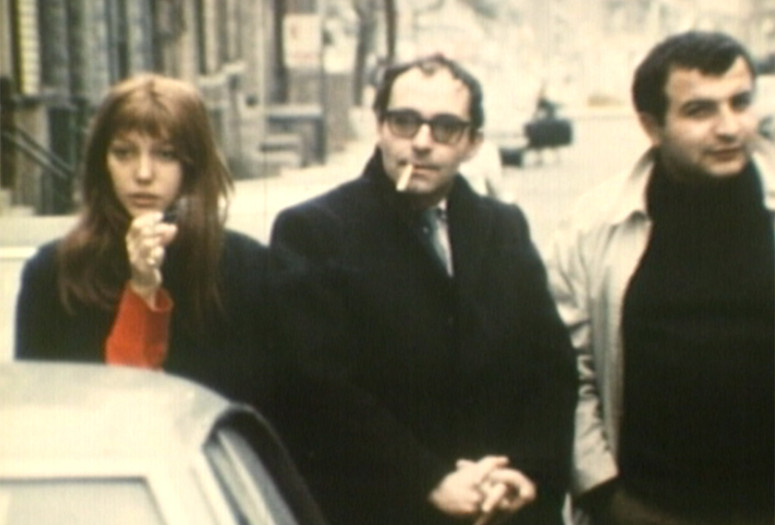
In the last weeks of 1968, MoMA’s Department of Film launched a new series centered on independent filmmakers, under a portmanteau of the words “cinema” and “probe,” gesturing toward “the camera’s objective ability to probe into the world.” No film better mirrors Cineprobe’s founding curatorial perspective than an extraordinary, if abandoned, collaboration between D. A. Pennebaker and Jean-Luc Godard initially developed for public television. Godard seized on the revolutionary potential of late-1960s America to enact his vision for radical cinema, and sought to construct his One American Movie from encounters with figures from the New Left, Black Power, and counterculture movements. (The latter, in a Manhattan rooftop performance by The Jefferson Airplane, was the only section Godard shot himself.) While the project was never completed, Pennebaker supplemented Godard’s notion of documentary and restaged sections with his own footage; renamed, the film was screened at MoMA in 1971, in the New York premiere billing “notes towards a movie.” Presenting the screening, Pennebaker, the recently departed pioneer of American documentary, reflected that *One P.M.*’s inability to resolve itself was one of its merits. This quietly iconic encapsulation of 1968 is followed by Henry Hills’s 1980s zeitgeist picture Money, in which a rapid-fire Lower East Side who’s-who pits art, performance, and poetry against capital in Reagan’s America.
One P.M. (One Parallel Movie). 1971. USA. Directed by D. A. Pennebaker, with Jean-Luc Godard, Richard Leacock. With LeRoi Jones, Eldridge Cleaver, Rip Torn, Tom Hayden, the Jefferson Airplane. 16mm. 95 min.
Money. 1984. USA. Directed by Henry Hills. With John Zorn, Susie Timmons, Sally Silvers, Ron Silliman, James Sherry, Peter Hall, David Moss, Mark Miller, Christian Marclay, Arto Lindsay, Pooh Kaye, Fred Frith, Alan Davies, Tom Cora, Jack Collom, Yoshiko Chuma, Abigail Child, Charles Bernstein, Derek Bailey, Bruce Andrews. 16mm. 14 min.